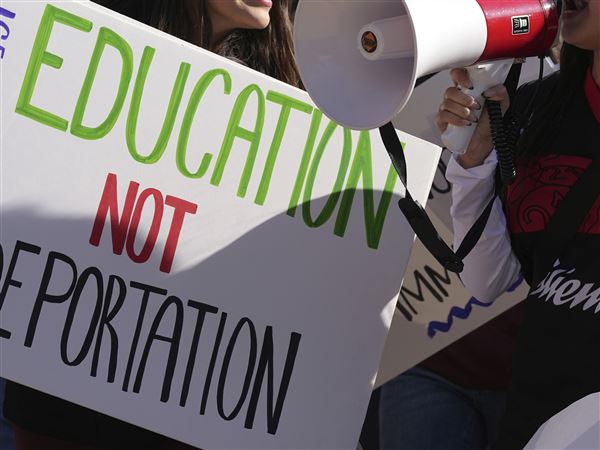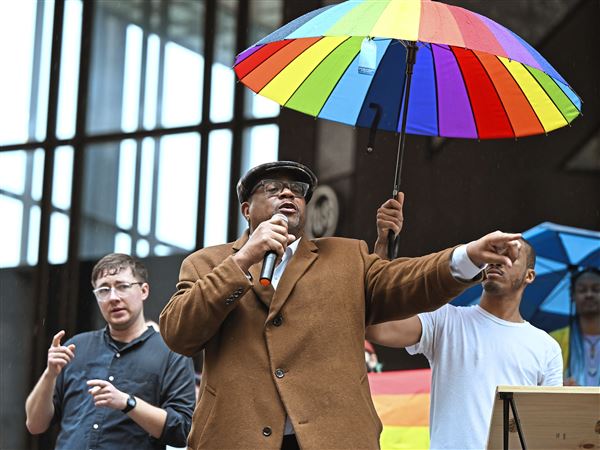In what was either a blatant attempt at committing governance or a feeble effort at getting noticed, the United States Congress actually did something last week, or at least part of it did, even if it was something of no particular merit.
Perhaps you remember Congress, formerly a co-equal branch of American government, holder of purse strings, adviser, consenter, investigator, approver, maker of laws. But that was months ago. Today it’s a kind of Washington D.C. kabuki house for unrepentant performance artists with as much impact on Donald Trump’s runaway kakistocracy as a conference of Renaissance poets.
Undeterred by its current status as political flotsam, the House of Representatives last week passed the so-called SAVE Act, a classical legislative solution in search of a problem, its obligatory quasi-clever acronym standing for Safeguard American Voter Eligibility.
A dark day
That’s hysterical.
It’s barely worth pointing out (like that would stop me), that we’re in era of American politics so toxic that 36% of eligible voters surrender their own eligibility by not doing it. In case you didn’t get the final arithmetic from November, 31% of American eligibles voted for Kamala Harris, 32% for Trump, and 36% for nobody.
If there was a landslide, the winner was Leave Me The Hell Alone.
As a matter of semantics, there was definitely some safeguarding at work in the House legislation; it was in safeguarding the narrow margins by which Republicans win by making it harder on traditional Democratic constituencies to vote. The SAVE Act would require that everyone prove U.S. citizenship before registering to vote by presenting a birth certificate, U.S. passport, some versions of Real ID, or naturalization paperwork.
A majority of Americans have no passport, and 60 to 70 million women do not have a birth certificate that matches their married name.
“Today is a dark day in politics,” League of Women Voters CEO Celina Stewart said redundantly, calling it “a direct attack on the fundamental right to vote and a dangerous step backward for our democracy. The SAVE Act is based on misinformation and fearmongering rather than facts, as there is no evidence of widespread non-citizen voter registration or voting in state and federal elections. Instead, the SAVE Act will create new barriers (that) harm rural voters, voters of color, married women who have changed their last names, and other historically marginalized voters who already face obstacles in accessing the ballot box.”
Of course, the SAVE Act isn’t the law yet; it needs Senate approval and a Trump signature, the basic machinations attendant to a working government, but there’s already an Executive Order in play that comes from the same voter-suppression playbook.
And all of this is the good news, as I view it, because as long as Congress and Trump are working to limit the vote, those ongoing efforts at least imply, for the moment, that Americans will vote again in 2026, and maybe even in 2028. The best news of the week, meaning, yeah, it wasn’t much of a week, was that ESPN’s ubiquitous Stephen A. Smith is now considering a presidential run in 2028.
Similarly, Trump kept New York Republican Elise Stefanik from taking a new gig as ambassador to the United Nations because he feared a special election to replace her in the House would go to a Democrat. But if the good news is that elections are still a thing, the bigger question will doubtless be: What kind of election?
Trump unconstrained
We’ve already seen that you can be fired and later investigated just for saying that Trump lost an election, or did you miss the news story in which Trump called for a Justice Department investigation into Chris Krebs, the former director of the Cybersecurity and Infrastructure Security Agency? Employees at CISA told NBC News that staffing cuts in recent months “severely degraded our capacity to defend critical infrastructure.”
While the political climate for fair elections erodes every day of Trump 2.0, the prospect of them threatens to vanish every time the president opens his mouth. Anyone who watched Monday’s “press conference” in the Oval Office, this one co-starring Salvadoran President Nayib Bukele and U.S. Homeland Security Adviser/Minister of Propaganda Stephen Miller, now understands that no law, no court, and no Constitution is going to constrain these people.
A court says to turn around a plane carrying supposed criminals to a foreign jail?
They ignore it.
A court says a Maryland father with no criminal history has to be returned from El Salvador, where he was sent by mistake?
They ignore it.
The Supreme Court rules 9–0 that the Trump administration must facilitate the same prisoner’s return?
They ignore that too, and Miller says SCOTUS ruled 9–0 “in our favor.”
A presidential election shall be held every fourth year? Sez who?
Giving up the game
“Here’s the thing,” the historian Heather Cox Richardson wrote this week, “Once you give up the idea that we are all equal before the law and have the right to due process, you have given up the whole game. You have admitted the principle that some people have more rights than others.”
And “Once you have replaced the principle of equality before the law with the idea that some people have no rights, you have granted your approval to the idea of an authoritarian government. At that point, all you can do is to hope that the dictator and his henchmen overlook you.”
Gene Collier’s previous column was “America has become America's worst enemy.”
First Published: April 15, 2025, 9:00 p.m.

















